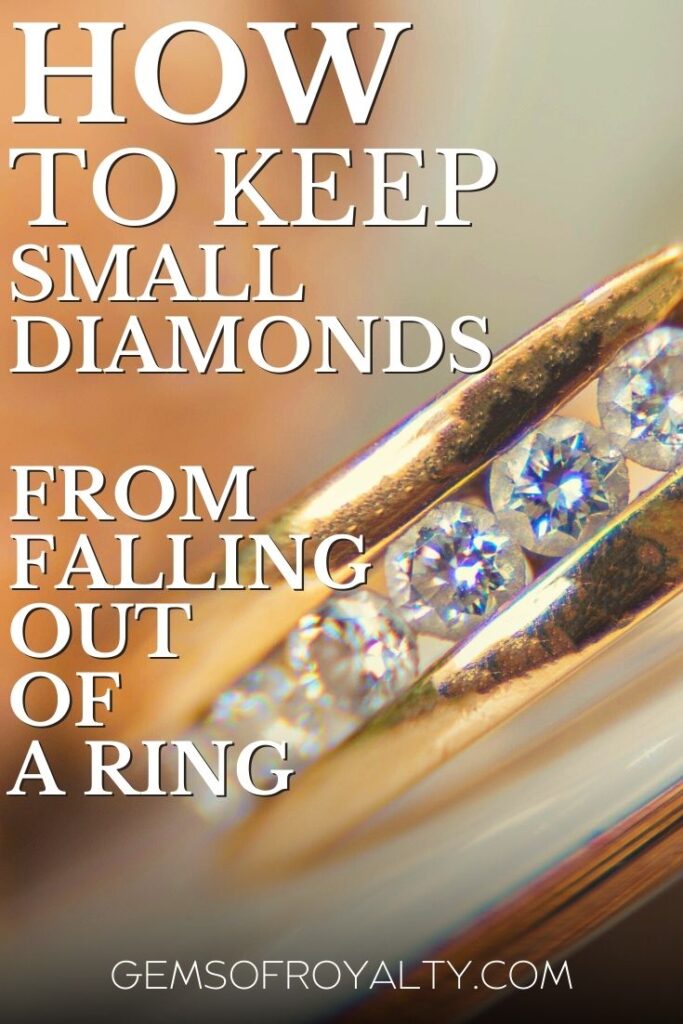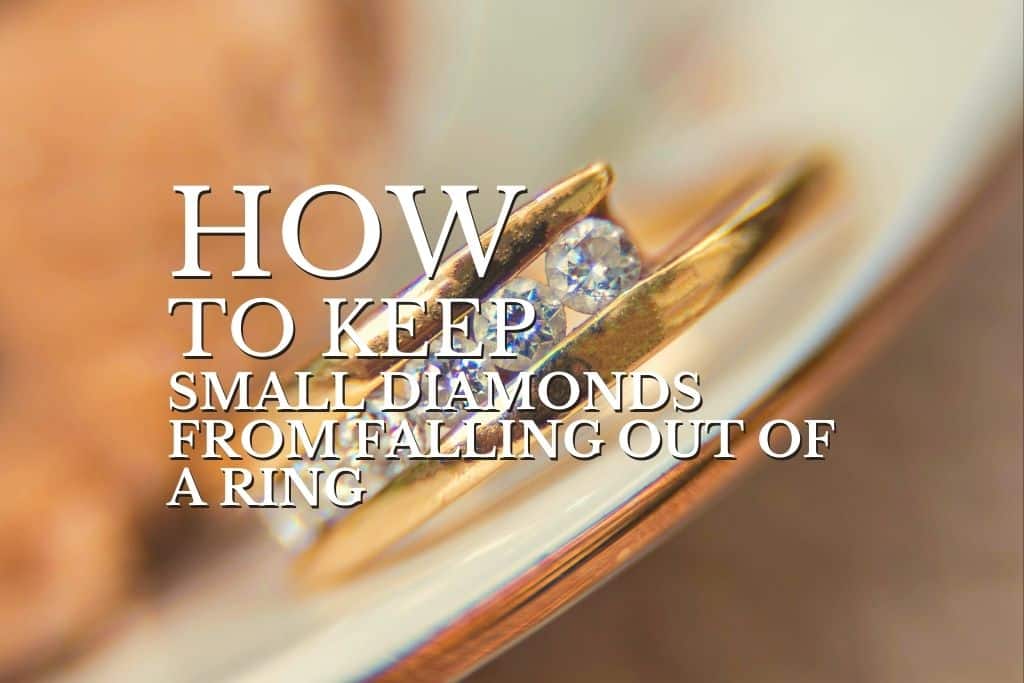Diamonds are hard, but diamond rings are certainly not indestructible. Every day, you bang your ring finger hard against tables, walls, doors—you name it—and this puts your expensive gems at risk of falling out. So, how do you prevent it?
You can keep small diamonds from falling out of a ring by taking it off when doing hard labor, having it professionally checked once every six months, and avoiding oils, hairspray, and other cosmetics when wearing the ring. Small diamonds, or melees, easily fall off without proper maintenance.
In this article, we’ll brush through what makes diamonds fall off your ring and cover five ways to keep small diamonds from falling out of a ring.
1. Keep Your Ring in Safe Storage When Engaged in Hard Labor
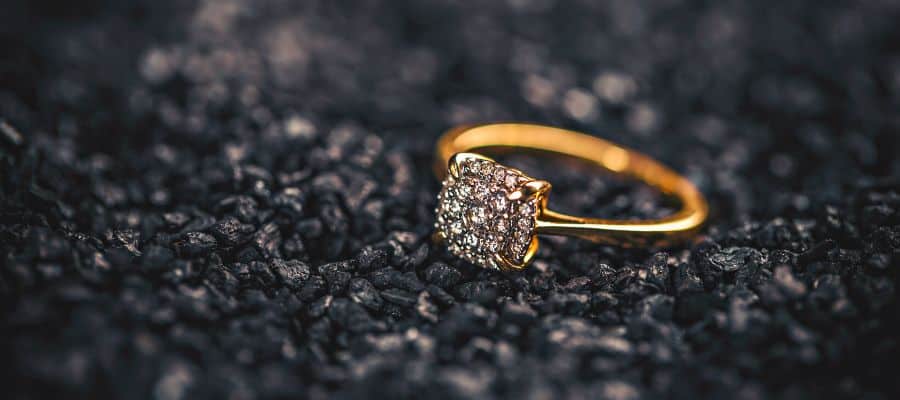
It’s easy to get lost in your gem’s beauty, and naturally, you want to take it wherever you go. What you may not realize is that this puts your ring at risk of losing its accent stones (the small diamonds), especially if your daily work revolves around hard labor.
Small diamonds can gradually fall off if you always have your ring on when:
- Lifting heavy objects
- Playing sports
- Swimming
- Gardening
- Doing laundry
Unfortunately, not all ring bands are made of stainless steel or other strong alloys. For instance, Platinum and Gold are the two most widely used metal band materials for diamond rings. These two metals are malleable, which means that they’re easy to bend. In case of hard impact, Platinum and Gold easily get dented, and that loosens up the small diamonds.
2. Have Your Ring Inspected for Damage Every Six Months
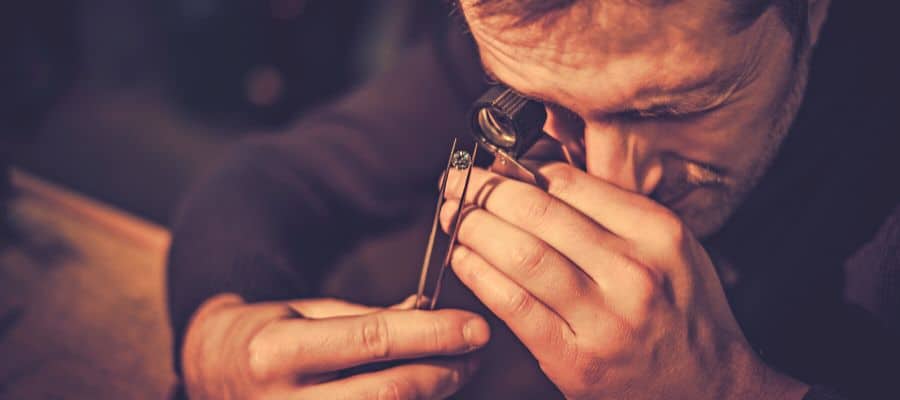
Having your ring inspected by a respected jeweler every six months is a preventive measure that saves you from future headaches. The jeweler will look for any signs of damage that could put your melees or, worse, your central gem at risk of falling off.
The damage includes:
- Dented prongs
- Missing stones
- Discolored setting
- Rattling sounds
- Loose stones
Damaged prongs are a cause for concern. These prongs hold the larger center diamond intact, and any signs of damage need to be quickly addressed. If you’re worried more about the smaller diamonds, the jeweler will put the ring under the microscope and carefully inspect the bar, pave, or channel setting that holds them in place.
3. Inspect the Ring Yourself Immediately After Hard Impact

On top of having your ring inspected by professionals, you can do your part in keeping the small diamonds in place. This should be done immediately after accidentally striking your ring against a hard object.
Instead of brushing off the matter, take a moment to inspect the damage and affirm that there are:
- No missing stones
- No significant dents to the setting
- No rattling sounds when you shake your ring close to your ear
A rattling sound means that there’s a loose stone in the setting and that the ring must be taken to the jewel shop for repairs before you can wear it again. Remember to scan the area carefully if the hard impact knocked out a diamond. It is easy to put the diamond back in place, but don’t panic if you can’t find it. Lost diamonds can be replaced at an extra cost or covered by insurance.
4. Avoid Applying Cosmetic Products When Wearing the Ring

Cosmetics, oils, and shampoos can seep into the setting and create a dirt and grime buildup that loosens the small diamonds. Consider taking off your ring if you use lotion, hand soaps, hairspray, and other cosmetics multiple times a day.
In addition, the chemicals in cosmetics can react with the metal of the setting, causing it to discolor or tarnish.
5. Steer Clear From Ultrasound Cleaning
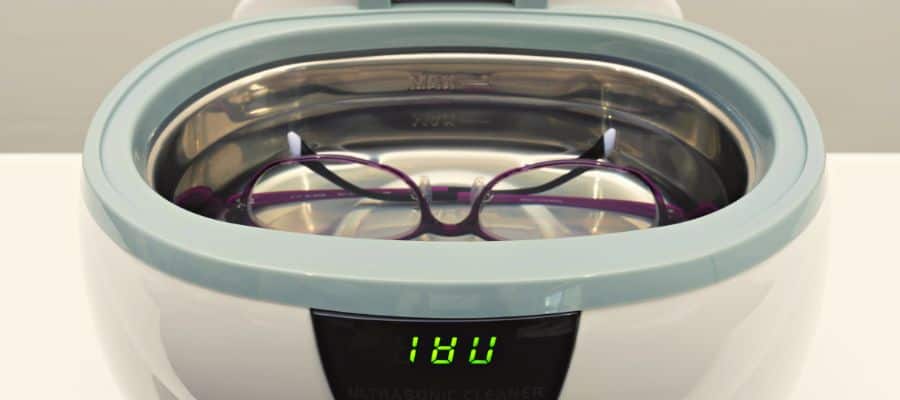
If you’ve had your jewelry cleaned professionally, the cleaner likely used an ultrasound device to do so. Using high-frequency sound waves, ultrasonic cleaners create cavitation bubbles that gently remove dirt and grime from surfaces. In just minutes, an ultrasonic cleaner can restore a ring to its original brilliance—no scrubbing required.
Unfortunately, not all diamond rings should be cleaned with ultrasound. It is recommended to avoid cleaning diamonds with inclusions (imperfections within the diamond, such as cracks, chips, and cavities) reaching out from the surface with ultrasound cleaners. Often these imperfections are filled with glass or resin.
An ultrasound cleaner may increase the size of the cracks and make them more visible. But it gets worse. During the diamond ring’s making, microscopic particles (e.g., tiny metal filings) could be stuck between the small diamonds and the setting, which helps keep them in place. Frequent ultrasonic cleaning can knock off this microscopic film of particles and loosen up the small diamonds.
For this reason, consider sticking to conventional methods of cleaning to keep your diamond ring clean, brilliant, and shiny. Use mild soap, clean water, and a soft brush, such as a toothbrush, to clean the grease stuck on your ring. Use a clean cloth to dry off the ring when you’re done.
What To Do When Small Diamonds Fall Off

If you notice that small diamonds have fallen off your piece of jewelry, the first thing you should do is inspect the setting. If the metal setting appears to be damaged or bent in any way, it’s best to take it to a jeweler for repair.
- Don’t panic. Small diamonds fall off the ring more often than you think.
- Trace your movement and look for the diamond.
- Get to the jewelry store and have the diamond replaced if you can’t find it.
- Purchase third-party insurance that covers your accent diamonds if the ring is very expensive.
If your ring is still under warranty, you may be able to get it repaired by the manufacturer at no cost. Otherwise, you can expect to pay a fee for professional repairs.
Conclusion
A ring’s prongs and setting can become worn over time and lose their grip on the small diamond, causing it to fall out. Most of the time, the blame can be shifted to the ring owner, so to prevent that from happening, take good care of your ring. Have it serviced every once in a while, and avoid bumping into hard objects that could knock the small diamonds out of place.
If you found this article useful, make sure you save this pin below to your Jewelry board.
